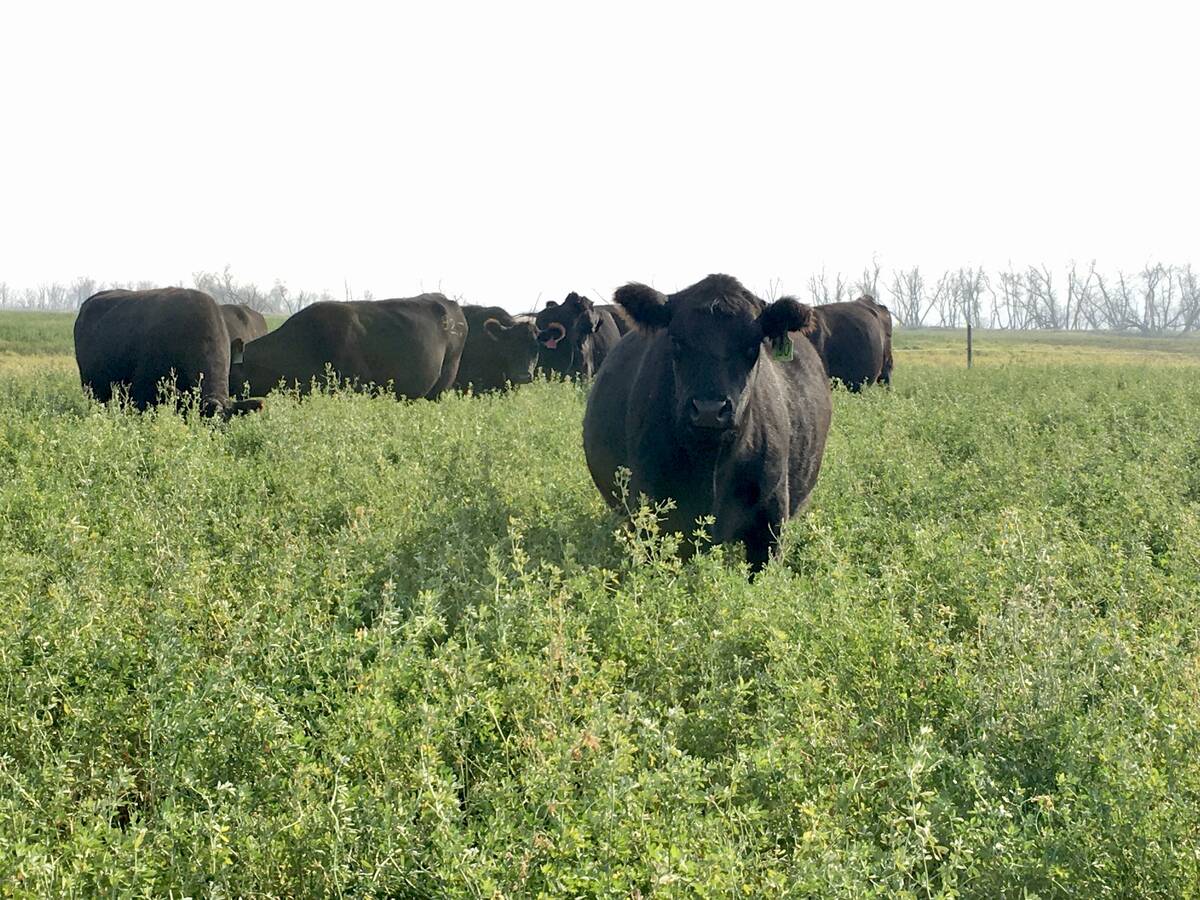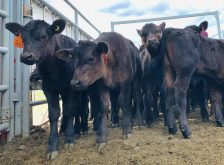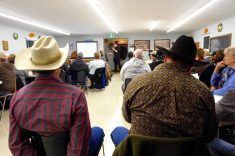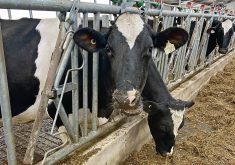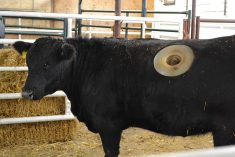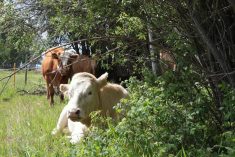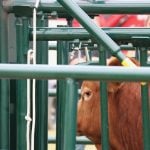On Aug. 12, the Alberta Beef Producers (ABP) Board of Directors made the decision to formally withdraw its membership from the Canadian Cattle Association (CCA) effective July 1, 2026.
“When the board began discussing the future of our relationship with the Canadian Cattle Association, it quickly became clear that this was a decision that required broader input,” said Doug Roxburgh, ABP chair.
The board initiated a consultation process with its delegate body. There were several opportunities for discussion, most notably a virtual delegate meeting on Aug. 11.
Read Also

Taking the farmers’ market online
Two Albertans, who have a cow-calf operation near McRae, had the idea to create Arvo, an online farmers’ market, after being unable to find beef from within their own community.
“Following these conversations, the delegates voted strongly in support of withdrawal. With that clear mandate, the board proceed to vote and voted on the decision,” said Roxburgh, who raises cattle near Bentley, Alta.
He said the move was rooted in governance, transparency and accountability, adding the decision was not made lightly.
“These are values we believe must be reflected in any organization representing Alberta beef producers. We sent a list of the key factors that led to the outcome to the CCA. It is important to us that the CCA be the first to know the reasoning,” he said.

Roxburgh said ABP has significant concern regarding the fiscal transparency at the CCA and recommended the CCA form a dedicated governance committee.
“We also suggested engaging an independent third-party to conduct a comprehensive review of CCA’s governance structure, with input from elected representatives,” he said.
Provincial funding assessments need to be based on retained marketings across all provinces, to ensure fairness and consistency.
“We also urge the unfreezing of board seats and a revision of the representation formula,” said Roxburgh.
“None of our suggestions are new to the CCA. Despite our efforts in asking for change, we have not seen meaningful progression or willingness to address these concerns,” he said.
CCA does not have a finance chair, said Roxburgh.
“We certainly understand there’s a potential for reduced marketings across Canada as the cow herd across Canada decreases, and so at ABP, we’ve worked hard to start to put a plan in place as to what our fiscal projection looks like with the potential of reduced marketings,” he said.
ABP has not been able to get a clear answer on what CCA plans to do in the event of reduced marketings.
Tyler Fulton, president of the CCA, said ABP’s decision was both a shock and not a shock.
“It was a shock to get such a stark announcement,” said Fulton, who raises cattle and has a small cropping entreprise near Birtle, Man.
“We didn’t see that coming.”
However, CCA said they had been working on the matter with ABP.
Roxburgh said ABP’s concern with CCA began about five years ago. An interim agreement between CCA and ABP started three years ago.
“In fact, it was a primary agenda for our September meeting, where we focussed on addressing the funding issue, and Alberta had referenced the likelihood that they’d like to revisit their representation on the CCA,” he said.
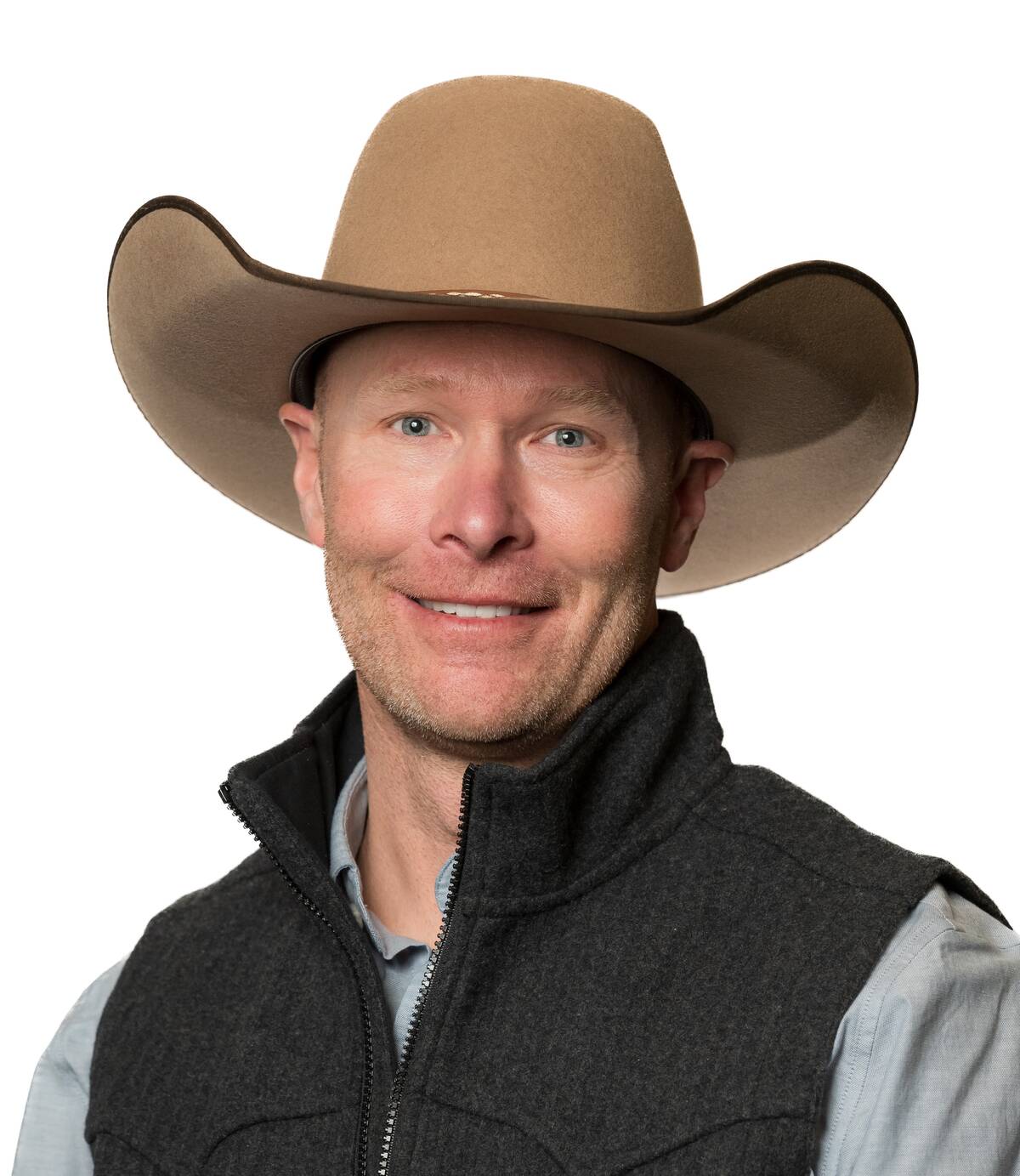
Fulton said the issues raised by ABP are not surprise issues.
“They made it very clear we had to address it, and so we were down that pathway, but didn’t really expect the negotiating tactic that they announced,” he said.
Fulton said having a smaller herd in Canada will likely affect CCA.
“The last three years, we’ve been on what I call an interim agreement that Alberta’s contributions to CCA were dependent on their service that they were able to retain that didn’t get refunded. The three-year agreement ends in June of 2026, and reflected a temporary measure, with the understanding that we would work towards a longer-term solution,” he said.
CCA is supported financially by all the provinces, but Alberta contributes the most because it has the largest cattle population. The funding from Alberta represents half of CCA’s financial resources on an annual basis, and so ABP’s departure would have a significant effect on CCA’s operations, and cause disruption.
“It’s a complicated scenario when one of the provincial members is looking for changes, because it’s not CCA’s authority to go and unilaterally change something. It has to work with all its members,” he said.
Fulton said he has heard ABP wants CCA to have more fiscal transparency.
“I think that’s a valid criticism,” he said. “CCA has a really complicated organizational structure, not just with the relationship between the provincial associations and CCA, but also divisions within CCA.”
The divisions include the Beef Cattle Research Council and CANFAX.
Fulton added that there are 80-page financial statements available at all directors’ meetings and the semi-annual meetings. Audited financial statements are available to cattle producers across the country.
Brad Dubeau, general manager of ABP, said ABP has made significant changes to strengthen its organization.
“We’ve streamlined our operations, enhanced our communications, and focused on strengthening the producer driven commission,” he said.
Dubeau said the changes better serve Albertan cattle producers.
“We are committed to continuous improvement and progress at ABP, and we hope to see the same commitment reflected in the organizations that we support,” he said.

ABP has a short-term plan in place to ensure Alberta’s voice continues to be heard provincially, nationally and internationally.
“We’re committed to keeping producers engaged and informed throughout the transition,” he said.
ABP’s financial obligations to CCA will continue until June 30, 2026.
“We are fully committed at ABP to honour that agreement,” said Roxburgh.
ABP’s decision to leave CCA won’t affect funding to the Canadian Beef Check-off Agency or its service providers, including the Beef Cattle Research Council, Public and Stakeholder Engagement and Canada Beef.
Roxburgh said ABP will continue to talk to CCA in the next few months.
“Our hope is for a strong national organization that ABP is part of, that’s truthfully what we want to see,” he said.
“It’s my desire and it’s been communicated to me that there’s a desire from Alberta Beef Producers’ executive to really work through these issues, have them return as a full member, in whatever new arrangement can be negotiated,” said Fulton.
He said his desire is to work through this rift.
“We have a long history despite this. We have a long history of collaborating and cooperating on so many different files, whether it be business risk management, or international advocacy work,” he said.
Fulton said CCA would be reaching out to other provincial cattle associations.
“It’s a complicated process because everyone is going to have their own perspective on it, and quite simply, CCA is driven by all of those different interests,” he said.
“We’ll work through it. I’m optimistic that we’re going to be able to come out further ahead and really address the concerns ABP has put forward. I spoke to Doug Roxburgh yesterday in person. I’m confident that we’ll be able to resolve this, especially after speaking with him.”


